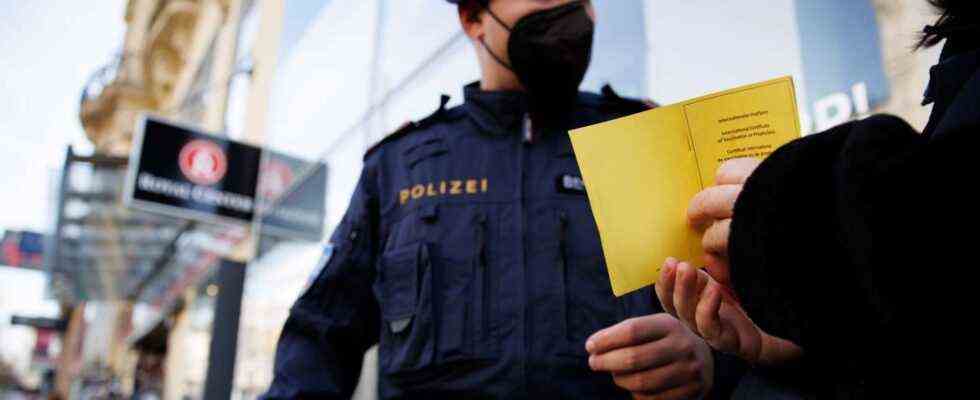The measure to contain the considerable number of new cases of contamination in Austria marks its most radical stage. Alexander Schallenberg, the Austrian chancellor, announced, Friday, November 19, the entry into force from Monday of a general confinement of the whole country for twenty days. He also indicated that a vaccination obligation would be introduced from 1er February 2022.
After having decided to confine unvaccinated people and then announced the containment of two regions, this general containment is a first in Europe since the spring. It is necessary “Look reality in the face”, said the conservative chancellor at a press conference in Tyrol after discussions with all regional governors.
“Despite months of persuasion, we have not been able to convince enough people to get vaccinated”, he stressed, deploring the current overload of intensive care units. ” Sustainably increasing the vaccination rate is the only way out of this vicious circle ”, said Schallenberg, judging that it was the “Exit ticket” of the pandemic.
“The dynamics of contaminations are not tenable”, explained Thursday Wilfried Haslauer, governor (ÖVP, Österreichische Volkspartei, People’s Party, Christian conservative) of the Land of Salzburg, where the seven-day incidence rate exceeded 1,700 cases per 100,000 inhabitants.
Almost 66% of the population fully vaccinated
As of Monday, the two million unvaccinated people were not allowed to leave their homes except for shopping, sports or for medical care. From now on, the entire population (8.9 million inhabitants) is affected by the measure, despite the establishment of a health pass in the spring.
On the model of previous confinements in the Alpine Republic, no travel certificate will be necessary; residents are called upon to stay at home, except to get to work or make essential purchases. They will also retain the right to take the air. Non-essential businesses, starting with restaurants and hotels, will be closed.
Admittedly, under the pressure of the measures and the epidemic, the number of vaccinated has increased slightly in recent days, with 65.6% of the entire population having received two doses, which is lower than the European average ( 67%) and far from countries like Spain (79%) or France (75%). Mr. Schallenberg described this rate as“Shamefully low” when he reported on the project to contain unvaccinated people.
But the current epidemic leap cannot be explained only by the low vaccination coverage. About 40% of symptomatic people positive for the coronavirus in the past four weeks had received two doses of the vaccine. Intensive care beds, however, remain almost entirely occupied by unvaccinated people. With nearly 500 patients in intensive care throughout its territory, Austria is still far from the situation observed in neighboring countries, all hit hard by this fourth wave.
In Europe, the pandemic is racing and several countries – Sweden, Germany, Greece – have announced tightening of restrictions in recent days.

